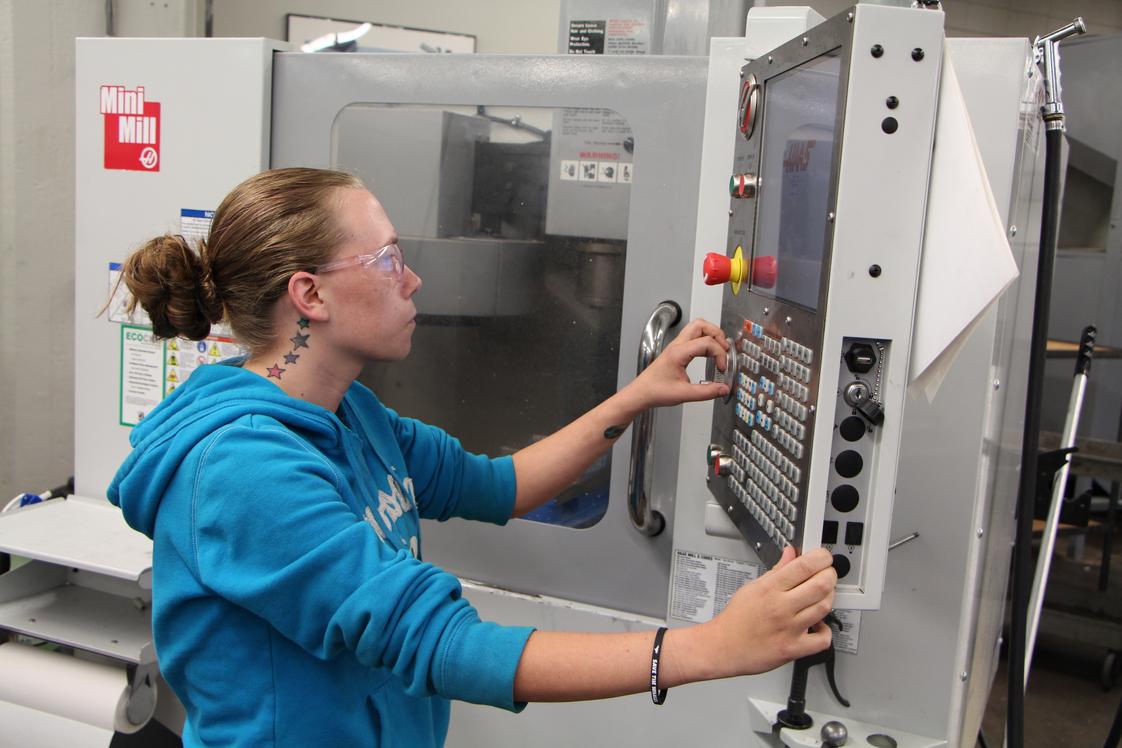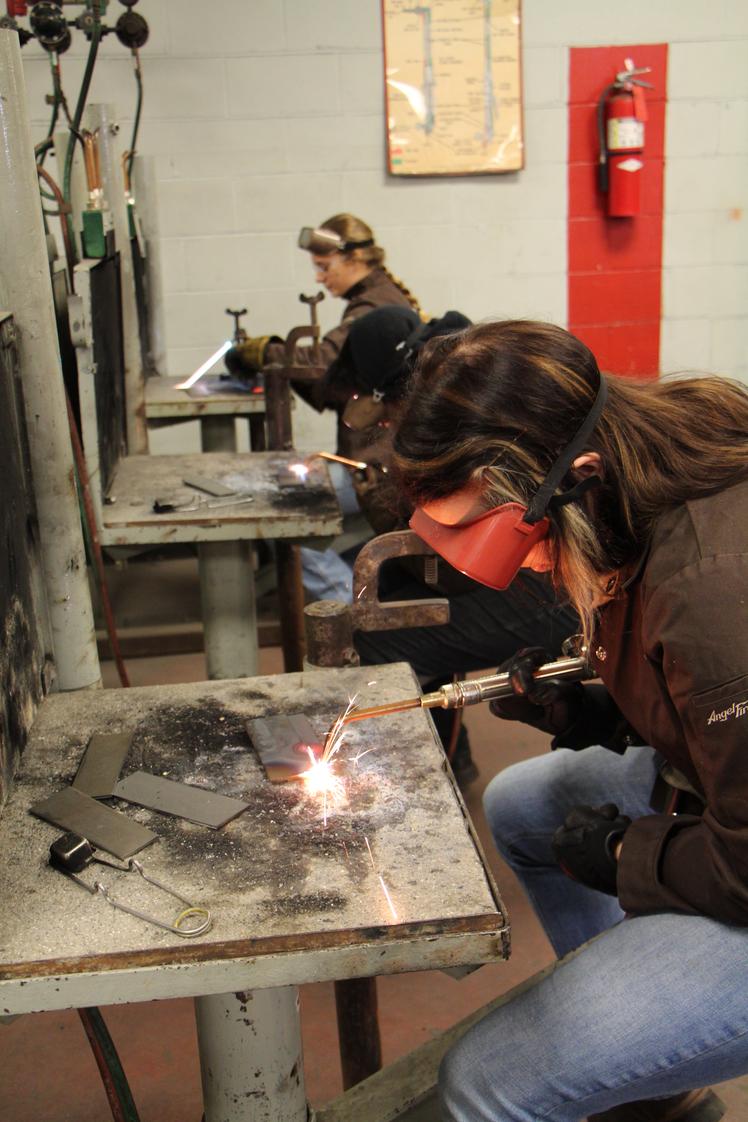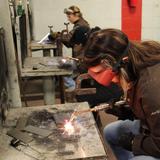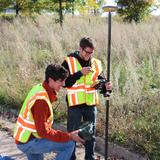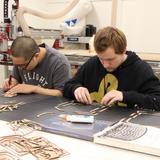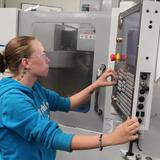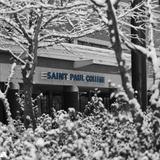- Dunwoody College of Technology is a private technology school in Minneapolis, Minnesota. It offers Bachelor of Science, Bachelor of Architecture and Associate of Applied Science degrees.
School Highlights
Dunwoody College of Technology serves 1,514 students (81% of students are full-time).
The college's student-teacher ratio of 7:1 is lower than the state community college average of 22:1.
Minority enrollment is 31% of the student body (majority Black and Asian), which is less than the state average of 42%.
Quick Facts (2026)
- Enrollment: 1,514 students
- Private-state tuition: $22,938
- Acceptance Rate: 99%
- Student-teacher ratio: 7:1
- Minority enrollment: 31%
- Source: Integrated Postsecondary Education Data System (IPEDS)
School Overview
The teacher population of 203 teachers has stayed relatively flat over five years.
Dunwoody College of Technology
(MN) Community College Avg.
Carnegie Classification
Baccalaureate/Associate's Colleges: Mixed Baccalaureate/Associate's
Associate's Colleges: Mixed Transfer/Career & Technical-Mixed Traditional/Nontraditional
Institution Level
Four or more years
At least 2 but less than 4 years
Institution Control
Private not-for-profit
Public
Total Faculty
203 staff
171 staff
School Calendar
Student Body
The student population of Dunwoody College of Technology has grown by 18% over five years.
The student-teacher ratio of 7:1 has stayed the same over five years.
The Dunwoody College of Technology diversity score of 0.51 is less than the state average of 0.63. The school's diversity has grown by 38% over five years.
Total Enrollment
1,514 students
2,858 students
Student-Teacher Ratio
7:1
22:1
# Full-Time Students
1,231 students
1,050 students
# Part-Time Students
283 students
1,808 students
# Enrollment Undergraduate
151 students
420 students
# Full-Time Undergraduate Students
1,231 students
915 students
# Full-Time Graduate Students
n/a
38 students
# Part-Time Undergraduate Students
283 students
1,771 students
# Part-Time Graduate Students
n/a
12 students
Total Dormitory Capacity
n/a
116 students
% American Indian/Alaskan
1%
1%
% Asian
6%
6%
% Hispanic
5%
8%
% Black
7%
15%
% White
69%
58%
% Hawaiian
n/a
1%
% Two or more races
5%
4%
% Non Resident races
1%
1%
% Unknown races
5%
6%
Diversity Score
0.51
0.63
College Completion Rate (Students who graduate in less than 4 years) (Year 2007)
54%
39%
College Completion Rate (Students who graduate in 4 years or more than 4 years)
47%
57%
Average Graduate Earnings (10 Years)
$48,300
$36,900
Tuition and Acceptance Rate
The private state tuition of $22,938 is more than the state average of $17,300. The private state tuition has stayed relatively flat over four years.
Private State Tuition Fees
$22,938
$17,300
% Students Receiving Some Financial Aid
94%
89%
Median Debt for Graduates
$16,000
$12,264
Median Debt for Dropouts
$6,470
$6,750
Acceptance Rate
99%
94%
SAT Reading
n/a
625
SAT Math
n/a
600
SAT Writing
n/a
565
ACT Composite
n/a
24
ACT English
n/a
24
ACT Math
n/a
23
ACT Writing
n/a
8
Source: 2024 (or latest year available) Integrated Postsecondary Education Data System (IPEDS) , School Administrators
School Notes
- Founded in 1914, Dunwoody College of Technology is the only private, nonprofit technical college in the Upper Midwest. Dunwoody College teaches problem solving and critical thinking along with practical, real-world skills that are much sought after by business and industry. It`s a rigorous style of hands-on, applied learning that requires discipline and personal responsibility. The emphasis is on understanding the basic theory and skills in lecture courses and then getting practice applying those skills in hands-on lab work with labs and shops that use equipment and processes that mirror what is found in industry. The College also fosters such values as work ethic, teamwork and punctuality. It prepares graduates to enter the diverse, performance-oriented, and modern workplace by requiring students to take Arts & Sciences courses in addition to technical curriculum. This applied approach to learning has been part of Dunwoody since its` founding in 1914 and was championed by the College`s first director Charles Prosser, who is known as the father of vocational education in the United States.
- Class sizes at Dunwoody are small so that instructors have time to get to know their students and provide individual attention. The relatively small size of the full-time student body provides opportunities for students to be personally involved in their school and encourages them to get to know their classmates. Dunwoody`s close relationship with local industry professionals means that students have direct interaction with standard industry practices as well as innovations in the field through field trips, internships and guest speakers. Shops, studios and laboratories are furnished with tools, software and other equipment typical of the industries that employ Dunwoody graduates.
Frequently Asked Questions
How much does Dunwoody College of Technology cost?
Dunwoody College of Technology's private state tuition is approximately $22,938.
What is the acceptance rate of Dunwoody College of Technology?
The acceptance rate of Dunwoody College of Technology is 99%, which is higher than the state average of 94%.
In what neighborhood is Dunwoody College of Technology located?
Dunwoody College of Technology is located in the Calhoun Isles neighborhood of Minneapolis, MN.
Recent Articles

Most In-Demand Community College Majors for 2025–26
Explore the most in-demand community college majors for 2025–26 workforce needs, aligned with hiring trends, wages, and transfer pathways.

New Guidebook Helps Students Navigate Community College
A new guidebook offers practical strategies to help students and families succeed in community college, from admissions to transfer and career planning.

Work-Study Opportunities for Spring 2026 Guide
Learn how to secure work-study opportunities for Spring 2026 before classes start, including timelines, tips, and eligibility guidance.

